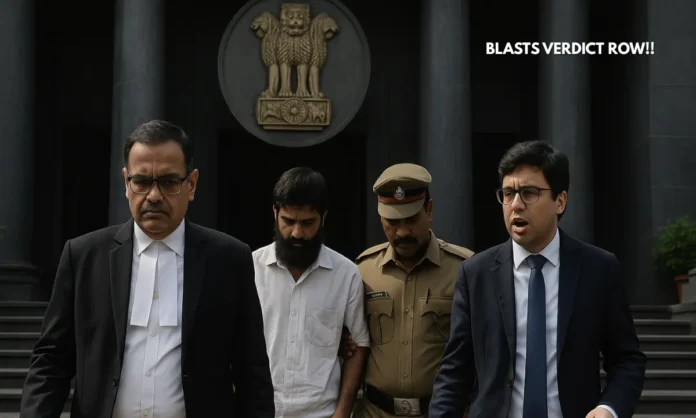Summary
- Maharashtra challenges Bombay High Court’s acquittal of 12 accused in the 2006 Mumbai train blasts.
- State alleges High Court erred in dismissing crucial evidence, including recovery of RDX.
- Supreme Court to hear the plea on Thursday amid renewed debate over the 2006 terror investigation.
Maharashtra’s Appeal and the Stakes Ahead
The Maharashtra government’s urgent appeal to the Supreme Court has reignited the debate surrounding one of India’s deadliest terror attacks — the 2006 Mumbai train blasts. Just a day after the Bombay High Court acquitted all 12 accused, calling the prosecution’s case “unproven beyond reasonable doubt,” the state has moved swiftly to overturn the verdict. The appeal was mentioned on Tuesday before Chief Justice of India BR Gavai by Solicitor General Tushar Mehta, who stressed the need for an urgent hearing. The Supreme Court has listed the matter for Thursday, underscoring the high-profile nature of the case.
The state’s petition argues that the High Court committed a “grave error” by disregarding key pieces of evidence, such as the recovery of 500 grams of RDX from one of the accused. The court’s dismissal of confessional statements, citing signs of “copying” and procedural irregularities, has drawn sharp criticism from investigators and law enforcement officials.
The Maharashtra government on July 22 moved the Supreme Court against Bombay High Court's decision to acquit all the twelve accused in the 7/11 train blasts case of 2006.
— Bar and Bench (@barandbench) July 22, 2025
The matter was mentioned by Solicitor General Tushar Mehta before CJI BR Gavai who agreed to list the case… pic.twitter.com/NGxJoxxd5V
High Court’s Verdict and Prosecution’s Missteps
- High Court quashed the 2015 trial court judgment sentencing five accused to death and seven to life imprisonment.
- The court found confessions inadmissible and circumstantial evidence inconclusive.
- Key recoveries, including explosives and detonators, were disbelieved due to technical lapses.
The Bombay High Court’s ruling questioned the credibility of the Maharashtra Anti-Terrorism Squad (ATS), noting that the prosecution “utterly failed” to prove the charges. The judges rejected the ATS’s reliance on confessions and forensic evidence, particularly the claims about pressure cookers packed with RDX and ammonium nitrate being planted in train compartments.
The state government’s appeal, however, contends that the High Court overlooked both the nature of the recovered material and the context of the attacks. It stressed that RDX, being highly flammable, cannot always be sealed with traditional methods, and that this technicality should not negate the recovery evidence.
Public Reaction and the Road Ahead
- Former Mumbai police commissioner A N Roy called the acquittal “shocking,” defending the ATS’s professional conduct.
- Victims’ families expressed dismay, demanding that the “real culprits” be held accountable.
- Supreme Court’s intervention could redefine how terror investigations are evaluated legally.
The 2006 blasts, which claimed 189 lives and injured over 827 passengers, remain etched in public memory. The attack, allegedly orchestrated by Pakistan-backed Islamic militants, was seen as a turning point in Mumbai’s security landscape. The acquittal, nearly two decades later, has raised questions about the judicial process, evidentiary standards, and the accountability of investigative agencies.
With the state’s appeal now before the Supreme Court, the case enters a critical phase. If the apex court accepts Maharashtra’s arguments, the acquittal could be overturned, leading to a retrial or further legal proceedings. Conversely, if the verdict stands, it would be a stinging rebuke of the state’s handling of the case over the past 19 years.
A Legal and Emotional Flashpoint
The 2006 Mumbai train blasts were not just an attack on the city’s lifeline but also on its collective spirit. The legal proceedings have spanned nearly two decades, with the trial court’s 2015 convictions now erased by the High Court’s ruling. As the Supreme Court prepares to weigh in, the case has become both a legal test of evidence handling in terror probes and a deeply emotional issue for the families who lost loved ones.


